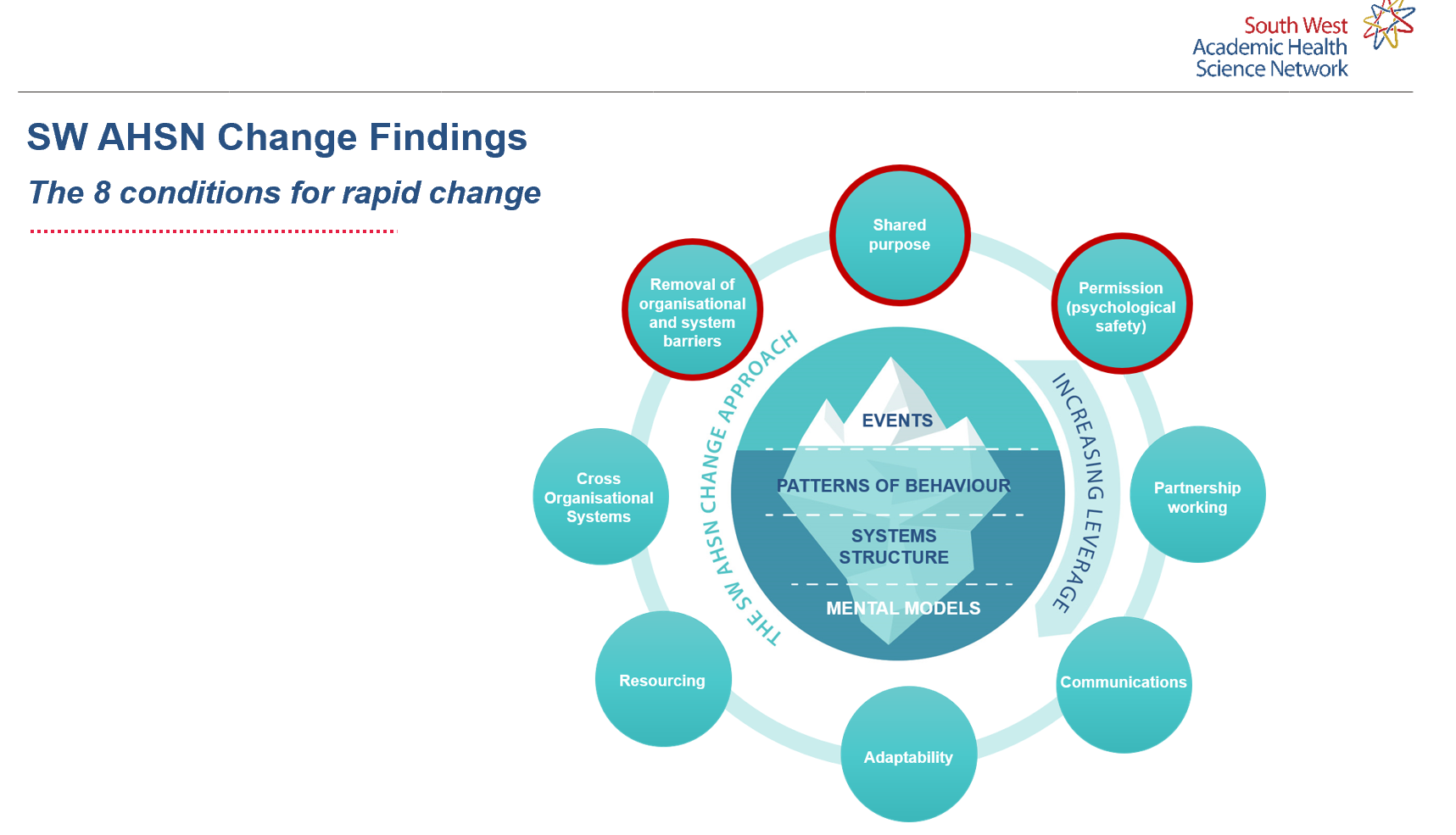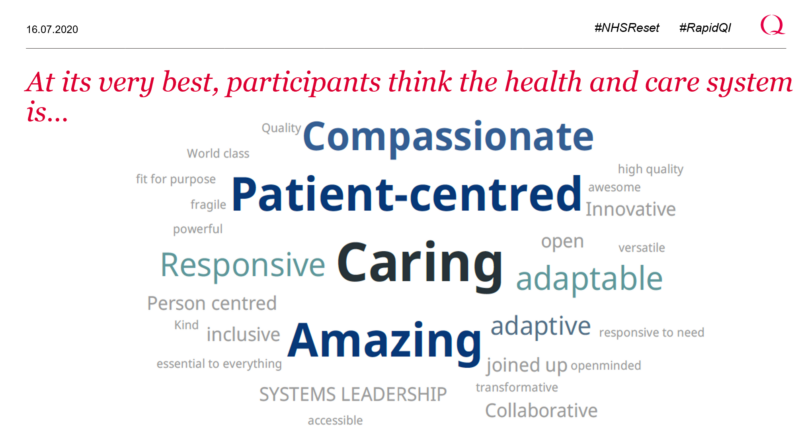Rapid innovation and learning have been at the heart of our immediate response to coronavirus (COVID-19). It is important that the conditions and ways of working that have enabled innovation to thrive are not lost in the rush to return to business as usual.
This Q workshop explored the rapid changes that have taken place and ways to use this learning to improve health and care services in the future. It was delivered in partnership with the NHS Confederation and the AHSN Network as part of the NHS Reset campaign.
This page includes:
- A video of the workshop
- Q member experiences of supporting system-level learning
- Information on learning tools and approaches
- An overview of risks for the future
Want to find out more?
- Download the full write up
- Sign up for our final workshop in this series
- Join the conversation on Twitter via #RapidQ
Watch the workshop
Q member experiences of supporting system-level learning
During the workshop we heard from Jon Siddall and Dominique Bird: two Q members, working in regional and national roles, about their experiences during COVID-19.
Jon Siddall is Chief Executive of South West AHSN. He shared an overview of the work they are doing to support learning during COVID-19 in Devon and Cornwall. They have identified 8 conditions for rapid change. Jon gave practical examples of the work they have done in three of these areas to support learning:
- Shared purpose to reduce conflicting priorities and enabling focus, for example using video consultations in general practice and sharing rapid learning across the region.
- Permission (psychological safety) to try things out, fail, ‘get on with it’ and innovate.
- Cross-organisational systems, such as social prescribing sites sharing data with the voluntary sector.

Dominique Bird is Head of Capacity and Capability for Improvement Cymru, part of Public Health Wales. Dominique was interviewed about her experiences of workforce changes during COVID-19. She spoke about the adaptability and creativity she witnessed in teams in the face of immense challenges, and discussed how an improvement mindset has been helping.
Dominique also discussed how increased collaboration and shared purpose across the health system has led to innovations and new partnerships in Wales, such as the Digital Care Home Cwtch. She ended with some practical examples of how their team have been supporting wellbeing and resilience, including through a collection of COVID-19 stories.
“In our team we have been looking to create moments of reflection and surface personal learning. We have been developing a collection of COVID stories from staff, told in 300 words, a picture or even a Lego build. The stories that have been shared are very moving and personal, capturing the impact on working life and home life. People have found the process cathartic, and it has led to more people sharing.”
Learning tools and principles
It is crucial that we find the time and space to capture and make sense of learning on the changes that are taking place. We know there are many challenges in doing this well. We shared six tools and principles that can support learning practices within teams, organisations and the system.
- Avoid jumping to conclusions
- Be purposeful
- Be timely
- Involve diverse perspectives
- Support psychological safety
- Focus on what is enabling the change
- Download the full write-up for more detail on the six principles, including some tools to support these learning practices.
Download the full write-up for more detail on the six principles, including some tools to support these learning practices.
Risks for the future
In the final part of the session we discussed three risks that have emerged from the conversations Q has held with practitioners and senior improvement leaders across the UK:
- Silos re-emerging and shared purpose being stretched by different viewpoints
- Returning to focusing on intervention instead of conditions: focusing on the ‘what’ at the expense of the ‘how’. Positive changes have been catalysed through COVID-19 and we need to identify these, build on them and ensure that they are not lost. Also recognising that talking about the conditions that enabled people and systems to adapt and improve is an important conversation to have.
- Top down vs bottom up: there’s a risk of simplifying the narrative about autonomy, permission and control into a simple bottom up vs top down story, where the reality is more complex and each part of the system has a role to play. What is the appropriate space for different people and organisations to be operating, and what can the pandemic teach us about that?
Participants used Sli.do to share their views on the top issues, in addition to the risks outlined above, we face in trying to ‘lock in’ positive changes. Responses included:

- Losing the focus on learning and reflection
- Increased workforce pressures
- Furthering or creating inequalities
- Reverting to previous ways of working
- Losing a collective shared purpose
- Thinking we can take a ‘one size fits all’ approach to solving problems
- Losing a clear focus on patient need
In thinking about their own leadership and behaviour, people want to avoid:
- Overcommitting, to a detriment of their wellbeing
- Not truly listening to others
- Losing the bottom up approach and imposing control
- Making assumptions
- Finally, participants shared their views on the health and care system when it’s at its best.
Download the full write up to find out more about what was shared and discussed, including tools to use to enhance rapid learning and improvement.